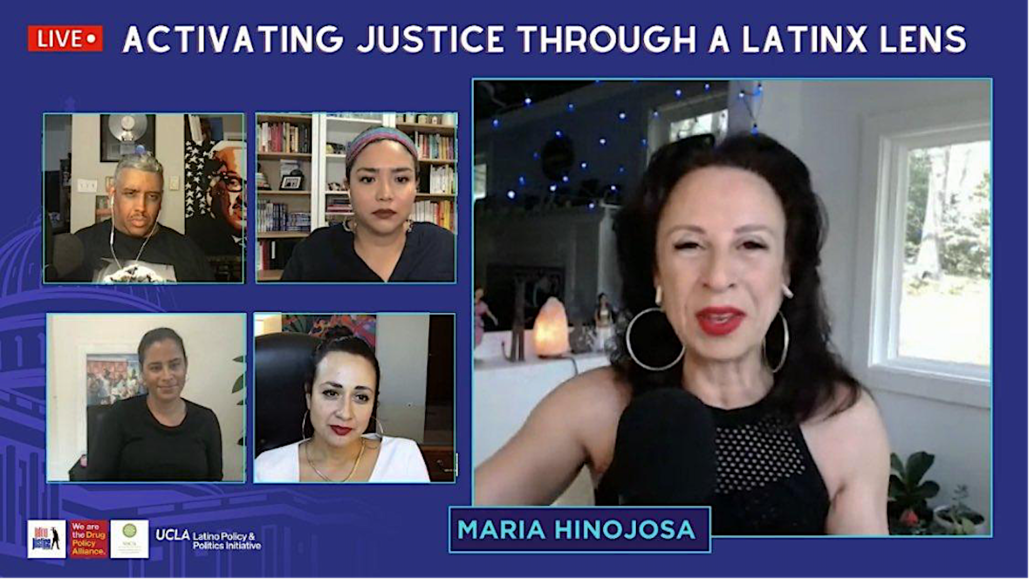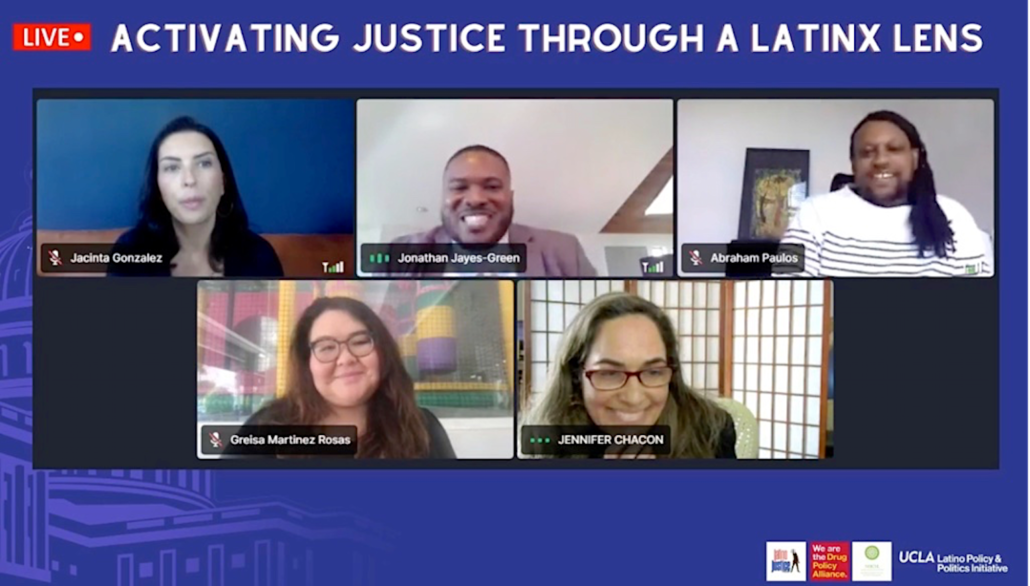UCLA Grants Deepen Ties to the L.A. Community Projects by Luskin faculty will build collaboration among scholars, students and local partners
The first goal of UCLA’s Strategic Plan is deepening collaborations and connections with Los Angeles. This academic year, several UCLA Luskin faculty are helping the university meet that mark.
As recipients of grants from the UCLA Center for Community Engagement, these faculty will explore ways to strengthen ties between community partners and UCLA students and scholars, with the goal of finding solutions to L.A.’s most pressing issues.
This year, the UCLA Community-Engaged Research Grants will fund exploratory projects including:
Achieving and Implementing Abolition in Los Angeles
Co-Principal Investigators: David C. Turner III, assistant professor of social welfare, and Kelly Lytle Hernandez, professor of history, African American studies and urban planning
Community Partners: Justice LA; Check the Sheriff’s Coalition; Police-Free LAUSD Coalition; People’s Budget LA Coalition; PUSH LA Coalition; LA Youth Uprising Coalition
Million Dollar Hoods is a UCLA research project that advances the labors of activists and advocates working to change how public dollars are spent in Los Angeles. In particular, it advances the work of those seeking to reduce criminal justice budgets while expanding health services, housing options, welfare benefits and employment opportunities. This grant will fund a deep strategic planning and research process focused on implementing community-led policy initiatives that reallocate public resources to supporting human-centered services.
Aligning Housing Policy With Popular Demand for More Housing
Co-Principal Investigators: Zachary Steinert-Threlkeld, associate professor of public policy, and Paavo Monkkonen, professor of urban planning and public policy
Community Partner: Abundant Housing Los Angeles
Angelenos understand the scarcity of housing and want to see more constructed. According to a November 2020 survey by the Los Angeles Department of City Planning, 64% of Angelenos call increasing housing supply a top or high priority. Support for more housing is one of the few bipartisan policy issues in the country, yet new housing construction in Los Angeles remains at multi-decade lows and rents and housing prices continue to rise. Untangling this puzzle is the focus of this community research.
Building Urban Soil Networks in Los Angeles for Research and Action
Co-Principal Investigators: Kirsten Schwarz, associate professor of urban planning and environmental health sciences, and Jennifer Jay, professor of civil and environmental engineering
Community Partners: TreePeople; Physicians for Social Responsibility – LA; Communities for a Better Environment; Watts Labor Community Action Committee – Better Watts Initiative
Urban soils are an important regional and national equity concern that shape the health and well-being of urban dwellers. They also represent a paradox of sorts, as contaminated soils are a hazard and clean soils are beneficial to the ecosystem. This project brings together community groups active in urban soils work in the L.A. region to build relationships, identify potential collaborations, and begin the process of coalescing around a common set of research priorities and actions.
Building Worker Power: Support for Low-Wage Worker Leadership With the Los Angeles Worker Center Network
Co-Principal Investigators: Chris Zepeda-Millan, associate professor of public policy, Chicano/a and Central American studies and political science, and chair of UCLA’s Labor Studies program; and Tobias Higbie, professor of history and director of the UCLA Institute for Research on Labor and Employment
Community Partners: Los Angeles Worker Center Network, including: CLEAN CarWash Worker Center; Garment Worker Center; Koreatown Immigrant Workers Alliance; Los Angeles Black Worker Center; Pilipino Workers Center; Restaurant Opportunities Center Los Angeles; Warehouse Workers Resource Center
The UCLA Labor Center, a founding member of the Los Angeles Worker Center Network, seeks to document best practices around multi-racial, multi-industry, multi-language organizing in support of labor standards, immigrant rights and anti-discrimination enforcement. In this project, researchers and worker centers will determine the best methods — such as popular education, storytelling, academic journals and social media — to document successful and replicable L.A. worker campaigns since 2009. They will also implement legal clinics and provide technical assistance to local agencies enforcing fair labor laws.
Healing Within While Incarcerated: The Role of Credible Messengers in Transformative Justice in L.A. County
Co-Principal Investigators: Lauren Ng, assistant professor of psychology, and Laura Abrams, professor of social welfare
Community Partner: Healing Dialogue and Action
Incarcerated youth experience a multitude of poor social, emotional and physical health outcomes after detention. To address these concerns, Los Angeles County has adopted a “rehabilitative, care-first model” of juvenile justice that is being implemented by Credible Messengers — leaders with the lived experience of incarceration. There has been limited academic collaboration investigating Credible Messenger programs. This partnership with an organization working in county juvenile justice facilities will advance the science behind the Credible Messenger approach with the aim of promoting healing of justice-involved youth.
Housing and Homelessness Justice Research Collaborative
Co-Principal Investigators: Chris Herring, assistant professor of sociology, and Ananya Roy, professor of urban planning, social welfare and geography
Community Partners: LA Tenants Union; Union de Vecinos
This grant supports a recently established collaborative partnership between UCLA faculty and the Downtown local of the LA Tenants Union. The funds will allow the partners to broaden a study of Los Angeles’ Permanent Supportive Housing initiative to address homelessness. Despite billions of dollars recently committed to this initiative, no research to date has examined its success or weaknesses. The UCLA grant will allow additional community partners to participate and aid the collaborative in envisioning a multi-year tenant justice research agenda.
Interdisciplinary Center on Housing and Homelessness
Co-Principal Investigators: Till von Wachter, professor of economics; Michael Lens, professor of urban planning and public policy; and Elizabeth Bromley, professor in residence of psychiatry and anthropology
Community Partners: Individual community members; Los Angeles Homelessness Services Authority; L.A. County Department of Health Services; L.A. County Department of Mental Health; L.A. County Department of Social Services
L.A.’s housing and homelessness crises are caused by a complex web of factors ranging from lack of housing production and zoning policies to structural racism in labor markets and justice systems. This project focuses on developing an interdisciplinary center that brings research communities together with people with lived experience of homelessness and policymakers from Los Angeles government and nonprofit agencies. The project emphasizes structural reforms needed to reduce homelessness and aims to inform the public debate by replacing misconceptions with data and research.
Previous awards from the UCLA Center for Community Engagement supported the development of two courses designed to immerse undergraduates in community-engaged research. The grants went to Associate Professor of Public Policy Meredith Phillips, who developed a course on data analysis for educational research, and Associate Professor of Social Welfare Lené Levy-Storms, who developed a course on human aging through an interdisciplinary lens.
Read about all of the 2024-25 Community-Engaged Research Exploratory Grants.



